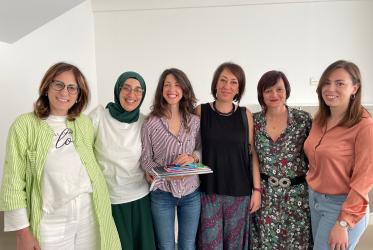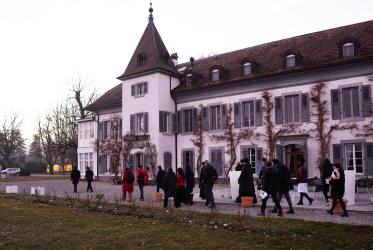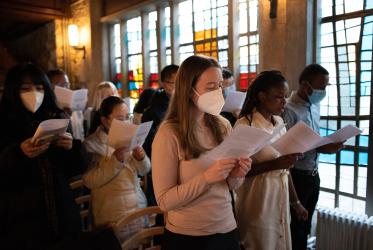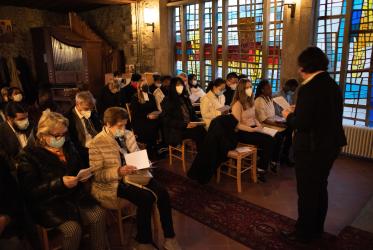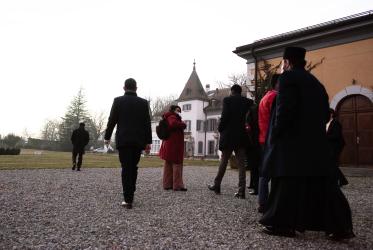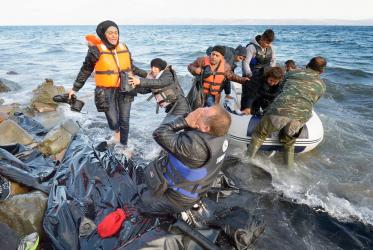Displaying 1 - 20 of 27
Bossey student Carolina Zamorano reflects on study visit to Rome
02 February 2022
Pope Francis expresses “fraternal closeness” with Waldensian Methodist
09 September 2019
All pilgrim routes lead to COP24
11 December 2018
Tveit: “What does mutual accountability mean?”
15 November 2018
WCC representative shares insights on youth at Synod of Bishops
15 October 2018
Paving the way for ecumenical studies, learning English in Bossey
24 September 2018



